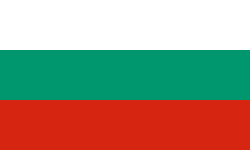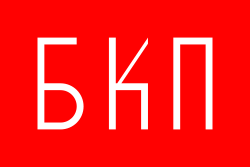National flag
| Flag | Date | Use | Description |
|---|---|---|---|
 | 1878–present | Physical National flag and Civil ensign | A horizontal tricolor of white, green and red. |
 | 1879–present | Wartime flag | A horizontal tricolor of red, green and white. |
 | ?–present | Digital flag | A horizontal tricolor of white, green and red. |
 | 1990–present | Hanging national flag | Vertical version of the tricolor. |

















































